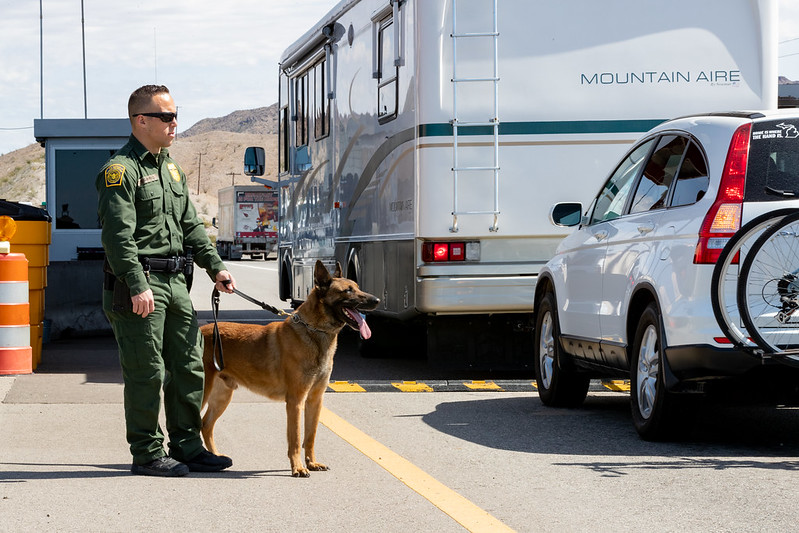The lawsuit, led by the ACLU, claims some Border Patrol checkpoints in New England are being used for general crime control rather than immigration enforcement.
Civil liberties groups in New England have filed a lawsuit against U.S. Customs and Border Patrol, claiming the agency’s practice of operating immigration checkpoints far from international borders is unconstitutional.
The lawsuit was filed by the American Civil Liberties Union on behalf of New Hampshire resident Jesse Drewniak.
Drewniak, recalls the lawsuit, was one of several people stopped at a Customs and Border Patrol checkpoint in August 2017. He, along with a carful of friends, were returning from a fly-fishing trip in the White Mountains.
When Border Patrol agents searched his car, they found a small amount of an illegal substance and cited him with a minor drug offense.
The checkpoint at which Drewniak was detained, notes New Hampshire Public Radio, is nearly 93 miles south of U.S.-Canada border.
In its lawsuit, the American Civil Liberties Union alleges that Border Patrol has constructed some checkpoints for the purpose of “general crime control and interdiction,” rather than immigration enforcement.

That, says the ACLU, is problematic.
“Border Patrol is charged with protecting the border,” ACLU-New Hampshire legal director Gilles Bissonnette said in a statement. “It is unconstitutional for Border Patrol to use interior checkpoints, nearly 100 miles from the border, as a ruse to unlawfully search and seize people for the purpose of general crime control. Yet that is exactly what Border Patrol is doing with checkpoints in northern New England.”
New Hampshire Public Radio notes that federal regulation permits Customs and Border Patrol to operate and maintain checkpoints within 100 miles of any international border.
That 100-mile zone, notes NHPR, includes the entire state of New Hampshire, as well as Maine and Vermont.
Past legal challenges against Border Patrol checkpoints have tended to fall flat, with courts upholding their constitutionality, so long as such checkpoints are effective in detaining individuals who have entered the United States unlawfully—and so long as they do not unduly burden those who have a legal right to travel within the country.
Drewniak, adds NHPR, was stopped at Border Patrol’s checkpoint near Woodstock, New Hampshire. While detained, federal agents used a drug-sniffing dog, which allowed Border Patrol officers to recover a “small amount of cannabis” from Drewniak’s car.
Several dozen other U.S. citizens—or persons otherwise legal entitled to transit through the region—were also charged with minor drug offenses after passing through the Woodstock checkpoint.
Ultimately, the charges against Drewniak and other defendants were dropped when a state circuit court found that the use of drug-sniffing dogs violated the New Hampshire constitution, insofar as federal officers had no due cause to initiate a search.
Drewniak and the ACLU’s lawsuit seeks damages along with an injunction to prevent Border Patrol from continuing to operate checkpoints geared toward general crime prevention rather than immigration enforcement.
Sources
Lawsuit Challenges Constitutionality Of Border Patrol Checkpoints On I-93


Join the conversation!